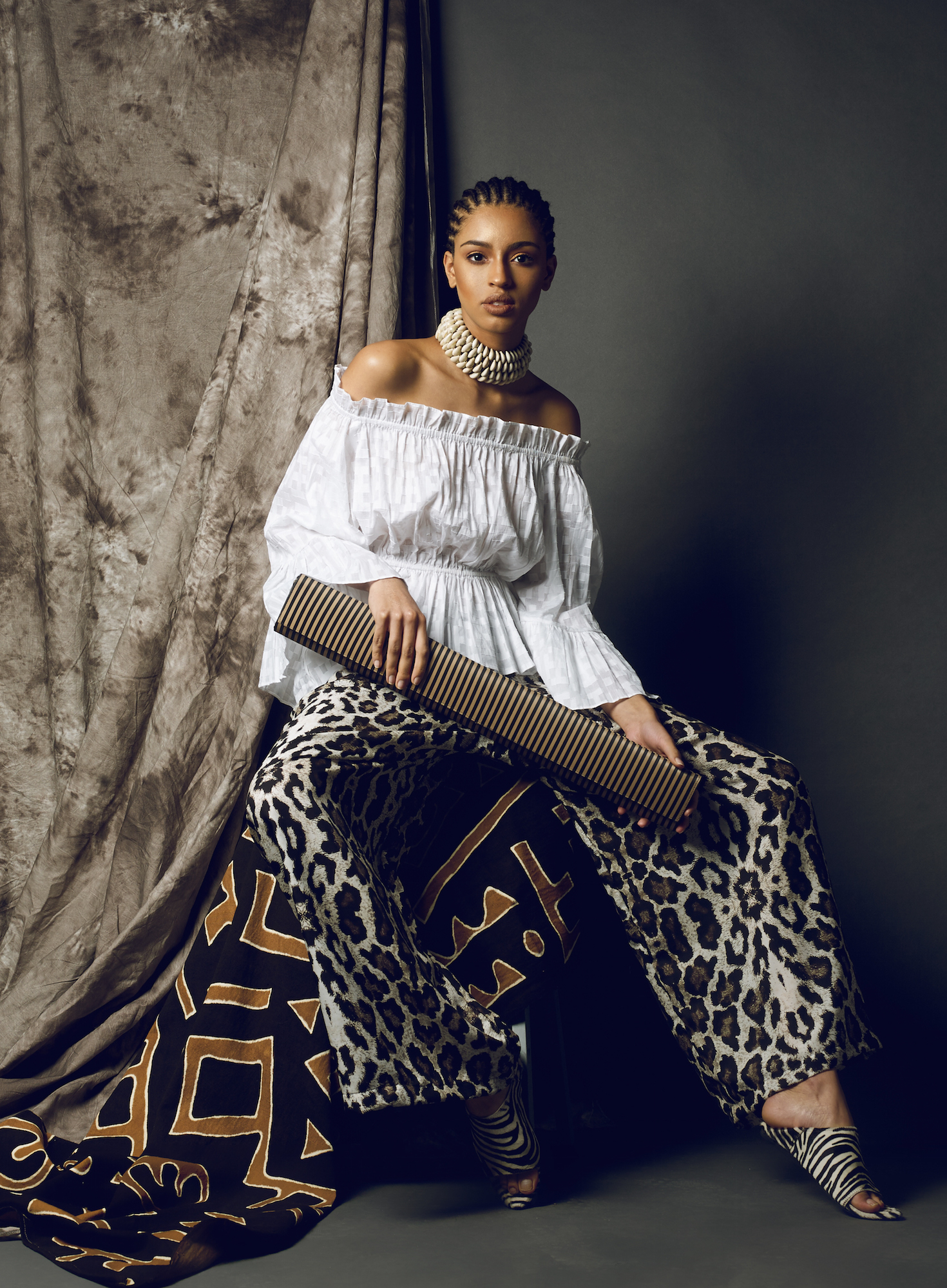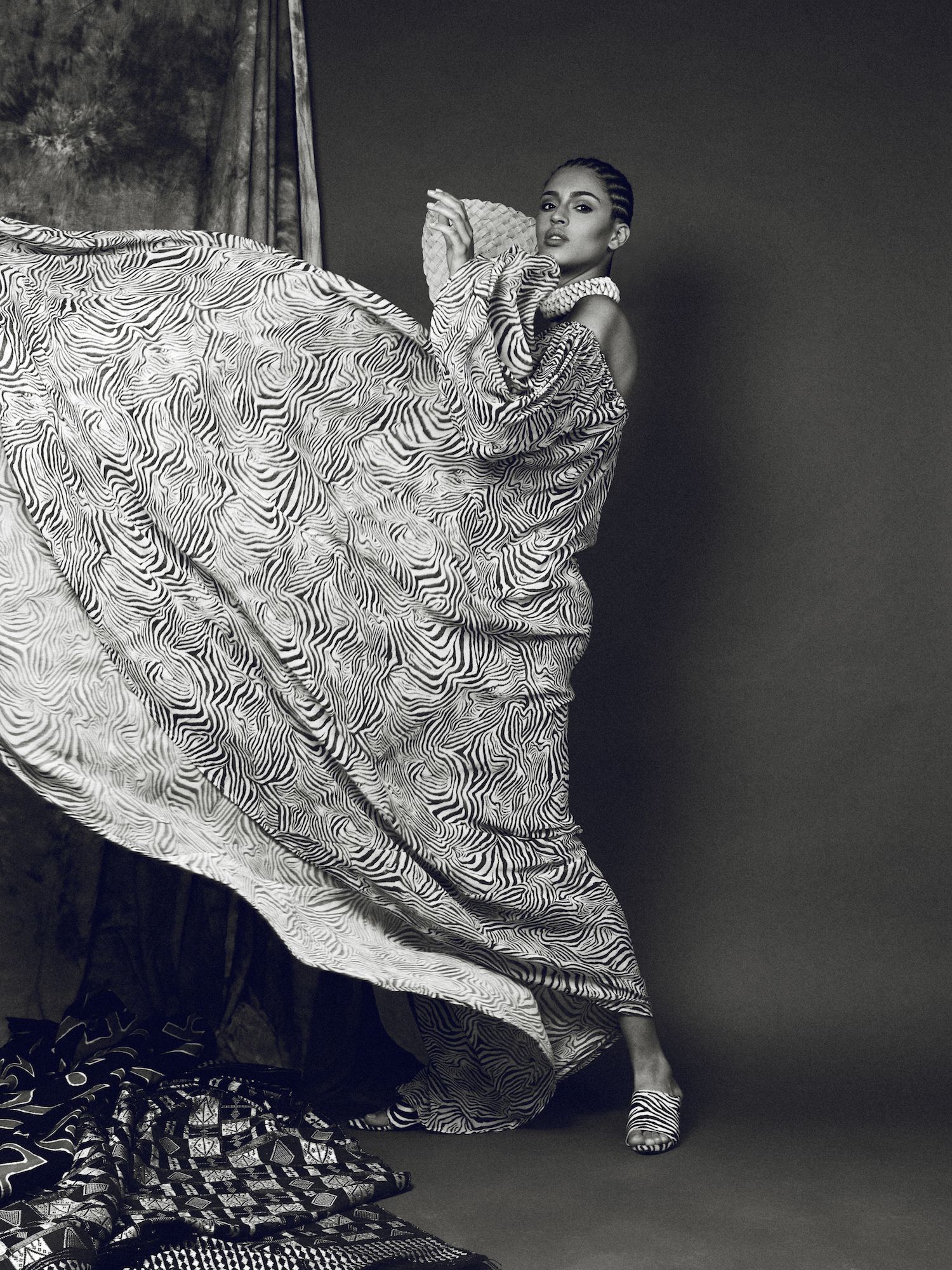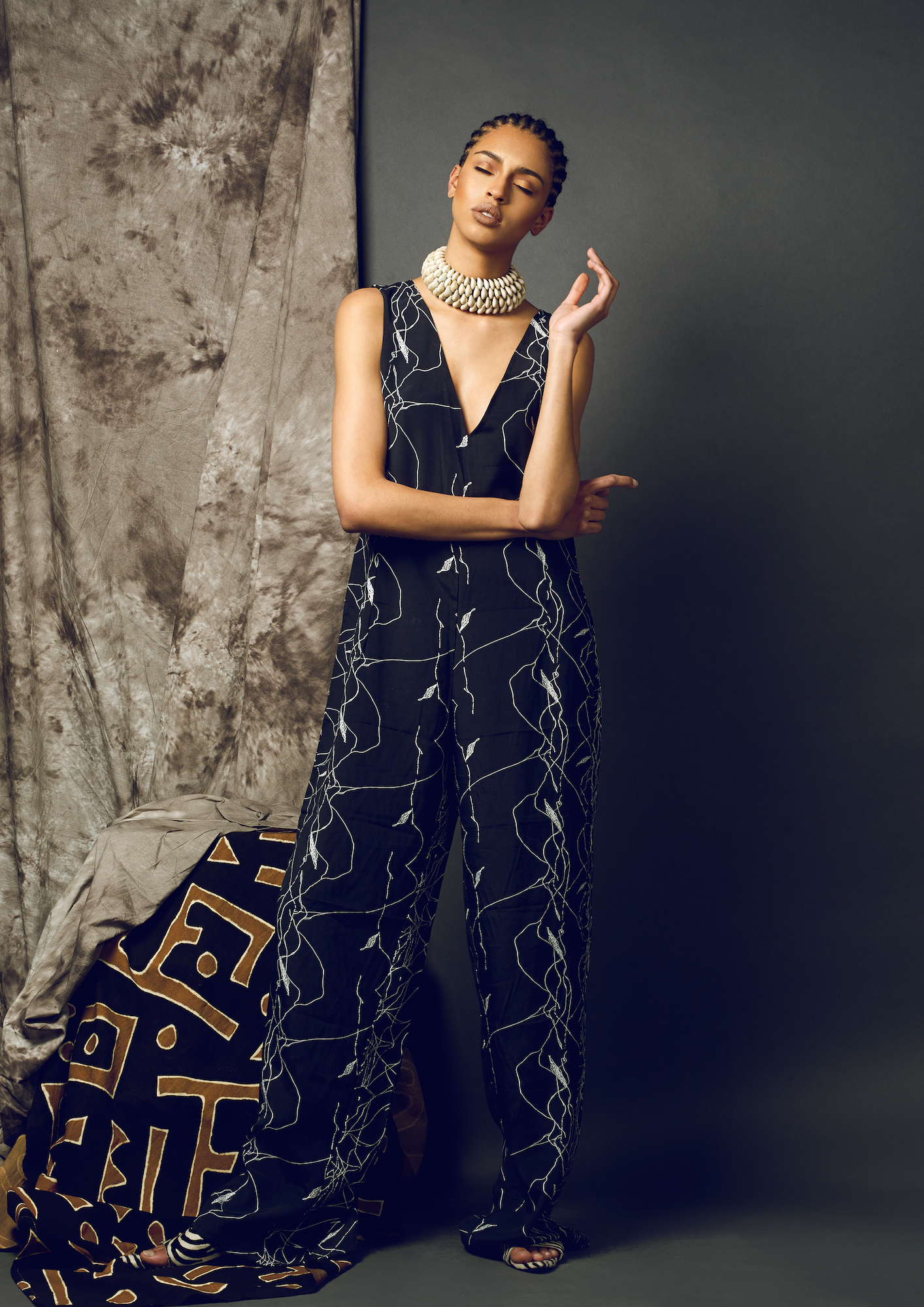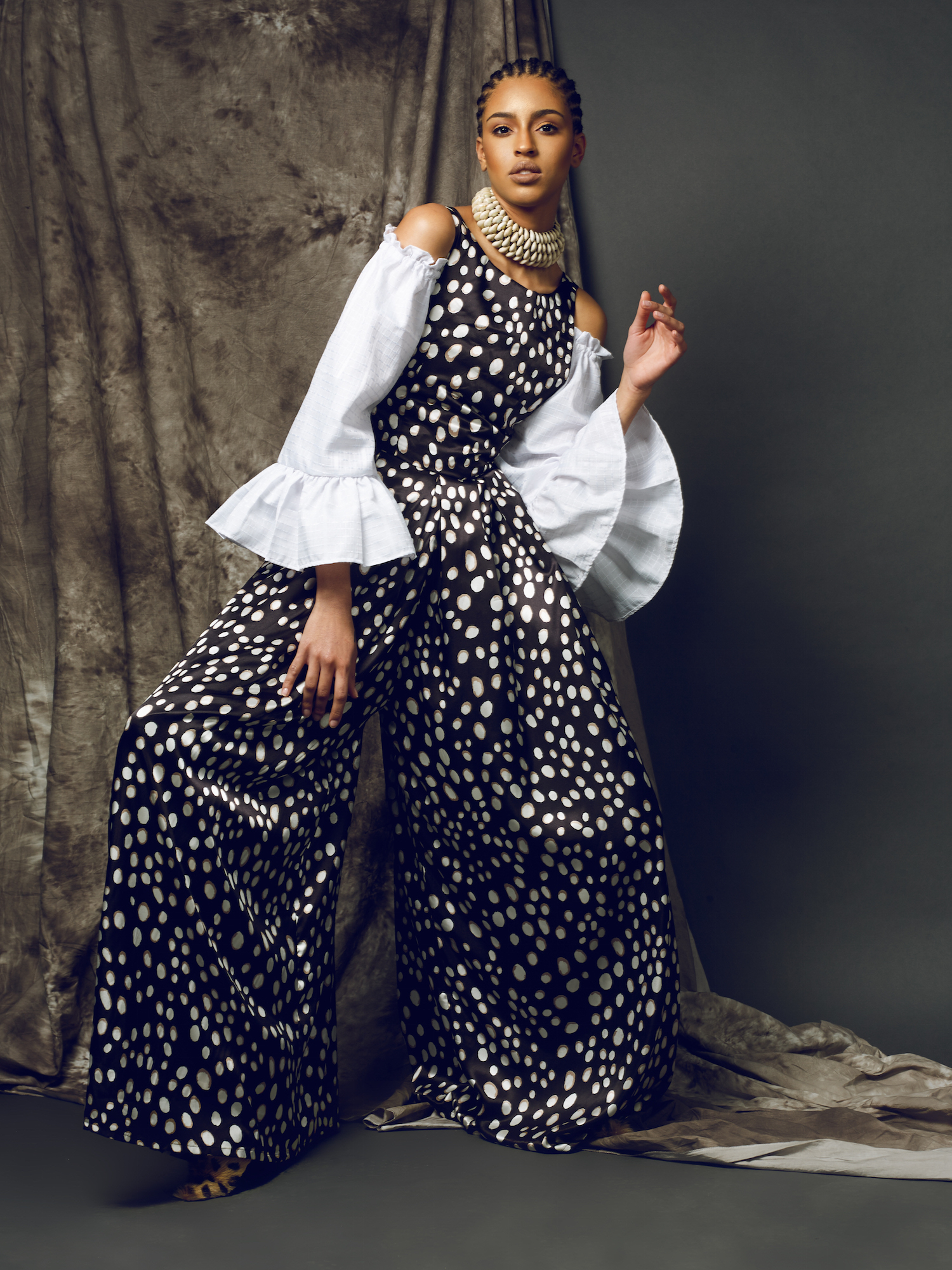Paris-based magazine editor,
stylist and entrepreneur Sarah Diouf tells Nataal about her journey to establishing her new Senegal-produced womenswear label Tongoro
I am not a designer. But I do master image and storytelling, which I believe is a pretty good skill to have in this day and age.
Two years ago, I came across Sophia Amoruso’s GirlBoss, an inspiring tell-all within which the founder of Nastygal explains how she built a $100million online business with zero business training. Amazing story. When I closed the book, I sat down for a minute, and started thinking of all the things I could do without having much. Many questions came to my mind but one remained without an answer and got stuck into my head. At a time where African fashion is making headlines, how come, when put on the same level as emerging American, European or Asian fashion businesses, they take off, flourish and reach global success in a way African ones don’t? I started researching and found out there is no such thing as tangible information on African fashion. I ended up drawing a list of labels and designers but without figures or business material strong enough to help me market and build a plan. So I started from scratch.
Anywhere you go in Africa, tailoring is a major activity; tailors are social agents in the development of African society aesthetics. They have such an important role and impact upon clothing production and local trends as they preserve traditional know-how that translates into the creation of unique garments for unique clients. They do not dress the masses alike.
“Tongoro is an African brand that dresses
globally, and that will hopefully help the ‘Made
In Africa’ label to become a gage of quality”
Where I am from (raised in Cote d’Ivoire by parents of Senegalese, Congolese and Central African descent) there is no industrial production system. And volume, when working with artisans, implies mastering patternmaking - something we do not.
It is very hard to deliver industrial quantities as there is no infrastructure or methodology. Most tailors start by learning from an elder rather than attending fashion school. Some of them develop exceptional skills, and build a reputation for themselves, but their activity is only rhythmed by the sartorial excitement of traditional festivities. With this in mind, the question was, what can I do about it?
I am not a designer. But I do have a sense of style, and a passion for business.
After observing and studying luxury, fast-fashion, and some of the most successful e-commerce business models, the challenge was to come up with a concept different from what has so far been presented when it comes to African fashion, and find the right configuration to be profitable. I questioned myself as a potential customer and came up with a survey. As a style conscious person of African descent, I would buy African designs; I wouldn’t mind statement pieces, but I would like them to be something I could wear on a daily basis, something affordable, and something I could get easily, wherever I am.
If the online business model was my first choice, the results I got from the 100 girls answering my survey convinced me this was the best formula for this venture.
Online fashion made in Africa. Affordable pieces available worldwide. Sticking to the global fashion calendar, I would start small, with two seasonal wardrobes a year, carrying women’s apparel and accessories — but aim for the big picture with the goal of contributing to the development of the African retail production in Western Africa, with a factory in Dakar, Senegal.
I am an African woman, and I wear my cultural heritage with pride, wherever I go.
But I also understand that I do not live in a world where the African cultures are dominant. And to prosper and win, we do not have to disappear or blend in, but to embrace and be embraced by most. Luxury is elitist and designs that are qualified as ‘ethnic’ merely make it to the global market without being put into a box. Today, I know what a girl or woman wants, and wants to feel like when she dresses, and I can easily translate that in clothing without having to only use what we call African fabrics. Tongoro is an African brand that dresses globally, and that will hopefully help the ‘Made In Africa’ label to become a gage of quality as it grows worldwide. The name itself resonates enough and the imagery tells a story I do not have to explain, and I believe that’s the power of a good branding.
I am not a designer, but I know how to make a brand.
Visit Tongoro






